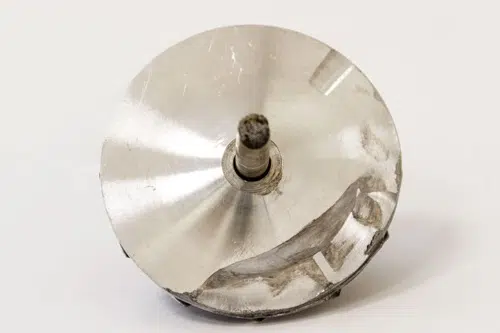causes of turbocharger damage
most frequent cases
If no obvious causes are found, make sure the turbocharger specialist performs a thorough troubleshooting program.
foreign bodies
Damage to the compressor wheel or variable blades caused by small objects entering the turbine or compressor housing at high speed, leading to restricted blade movement and wheel imbalance.


LACK OF LUBRICATION
Injuries due to turbocharger wear and material transfer created by metal-to-metal friction, high temperatures caused by narrowing in the oil adduction inlet, improper gasket placement, and use of liquid gaskets or poor quality lubricants.

OIL CONTAMINATION
Turbocharger bearing system damage usually caused by a high concentration of carbon suspended in oil, caused by infrequent oil and filter changes or poor maintenance.
Bearing damage can also be due to metal particles caused by engine wear or steel in fragments suspended in oil following major engine work.


OVERSPEED AND EXCESSIVE TEMPERATURE
Turbocharger damage caused by working beyond studied parameters or outside the vehicle manufacturer’s technical specifications.
Maintenance problems, engine malfunctions, or unauthorized performance changes can push turbocharger speeds beyond operating limits, causing failure due to compressor and turbine wheel fatigue.




